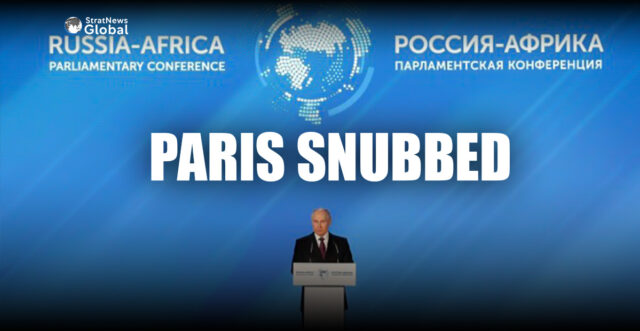
In a surprise move, the government of Chad has decided to end its defence cooperation pact with France.
France’s plan to significantly reduce its military footprint in West and Central Africa is facing unexpected setbacks, with the potential to weaken its influence in the region as other powers, including Russia, expand their presence.
A report submitted to French President Emmanuel Macron this week proposed slashing troop numbers in Chad, Gabon, and Ivory Coast from 2,200 to around 600. While specifics of the plan remain confidential, sources revealed that Chad would retain the largest contingent, reduced to 300 troops from the current 1,000.
Chad dealt a blow to France’s plans on Thursday by abruptly ending its defense cooperation pact with Paris, raising the possibility of a complete withdrawal of French forces from the country. The decision surprised French officials and underscores the challenges France faces in maintaining its regional presence.
“Chad has long been a critical hub for France’s military operations in the region,” said Ulf Laessing, director of the Sahel Programme at the Konrad Adenauer Foundation in Mali. “Without Chad, France’s ability to sustain other operations in Central and West Africa will be severely compromised.”
Further complicating matters, Senegal’s President Bassirou Diomaye Faye stated that it was no longer appropriate for French troops to remain in his country, where 350 soldiers are currently stationed.
France’s Retreat from Africa
The drawdown follows recent withdrawals of French troops from Mali, Burkina Faso, and Niger after military coups and a surge in anti-French sentiment across the region. France’s shifting priorities, including its focus on the war in Ukraine and domestic budget constraints, are reshaping its security strategy in Africa.
The revised military posture envisions remaining French troops focusing on training, intelligence sharing, and responding to specific requests from host nations, sources indicated. However, Chad’s abrupt decision to terminate its cooperation agreement was unexpected and interpreted by some as a response to France’s reduced military commitment.
A French official familiar with Chadian affairs suggested the decision may reflect Chad’s dissatisfaction with France’s diminished ability to guarantee security for the regime of President Mahamat Idriss Déby. Déby seized power after his father’s death in 2021 and secured a controversial election victory this year.
Russia, others step in
The French pullback comes as Russia and other nations, including Turkey and the United Arab Emirates, increase their engagement in Africa. Russian mercenaries from the Wagner Group are already supporting military governments in Niger, Mali, and Burkina Faso in their fight against Islamist militants.
While some analysts argue that Russia may struggle to exploit France’s reduced presence in Chad due to competing interests in Sudan and its ongoing commitments in Ukraine and Syria, the shift marks a significant moment in the region’s geopolitical dynamics.
Chad’s government framed its decision as an assertion of sovereignty more than six decades after gaining independence from France. “This decision should not affect the friendly relations between the two nations,” Chad’s foreign ministry said in a statement, emphasizing its desire for self-determination.
The move underscores the diminishing influence of Western powers in Africa, with both France and the U.S. scaling back their military engagement. Earlier this year, U.S. special forces left Chad as part of a broader review of American cooperation in the region.
While France is seeking to maintain diplomatic ties and a limited security role, its drawdown marks the end of an era in its long-standing military engagement in West and Central Africa.
(With inputs from Reuters)
In a career spanning three decades and counting, Ramananda (Ram to his friends) has been the foreign editor of The Telegraph, Outlook Magazine and the New Indian Express. He helped set up rediff.com’s editorial operations in San Jose and New York, helmed sify.com, and was the founder editor of India.com.
His work has featured in national and international publications like the Al Jazeera Centre for Studies, Global Times and Ashahi Shimbun. But his one constant over all these years, he says, has been the attempt to understand rising India’s place in the world.
He can rustle up a mean salad, his oil-less pepper chicken is to die for, and all it takes is some beer and rhythm and blues to rock his soul.
Talk to him about foreign and strategic affairs, media, South Asia, China, and of course India.




